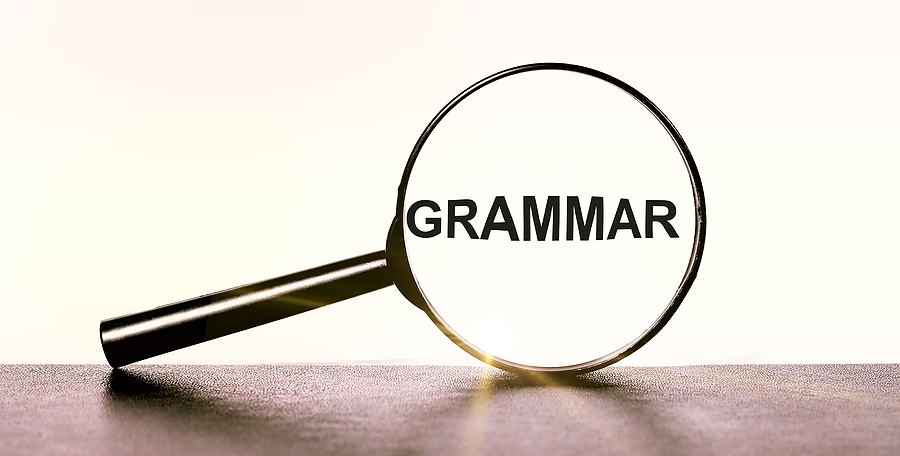Some time ago I asked my clients what publishing terms or concepts they wished someone would define or explain for them. I covered some of those in my September 16 post on this site. Some, however, asked for help with some nagging grammar questions. (We all—even the most accomplished—have such questions.) So I was going to answer them, but then I thought, Why not ask my friend, editor, and grammar nerd Nancy Lohr to do the actual work? Not that I’m afraid of work; I just avoid it whenever possible. So, let me steal—er, borrow from—her expertise to answer these three questions my readers and clients have thrown at me:
Question 1: I never feel completely confident about when to use simple past tense and when to use past perfect. “I talked to Mary” or “I had talked to Mary”? Does past perfect always require a sequence of events, i.e., “I had talked to Mary before I left for the store”; otherwise, simple past will do, “I talked to Mary.” What about, “I talked to Mary, then I left for the store?” When is that troublesome “had” necessary?
Answer: Of course you don’t feel confident. That’s because English is consistently inconsistent. I’ve even heard of authors and agents who want someone else to explain grammar for them, but I think you’ve got it. Here’s how I compare past and past perfect tenses.
Past tense simply refers to events that have already occurred: “It rained all night” or “I watched a movie yesterday.”
Past perfect tense (also called pluperfect if you want to sound as smart as Bob) refers to actions that occurred before a certain point in the past, so not only in the past, but also before a specific time in the past. The sentence will look like this: subject + “had” (the past tense of “to have”) + the past participle: “She had published five books before she turned thirty,” “A tree had fallen on our garage.”
So now you want to know what a past participle is—a verb form that typically ends in “-ed” and is used to form perfect and passive tenses.
E.g.—look=verb
looked=participle
Bottom line: If you need to indicate that something happened before a certain time, then you need past perfect. If you don’t, simple past tense is fine.
Here’s a bonus tense:
Historic (or historical) present tense is also called dramatic present or narrative present, and you have probably seen it. This is when present tense is used to narrate past events. So, for example, someone might write: “Paul hears footsteps on the stone passageway, and then the jailer calls out, ‘Paul! Silas! Are you still in there?’” This reads as if it’s present tense, but we know this took place long ago, so it could also be written in past tense with “Paul heard” and “the jailer called out.”
So, when do you use historic present tense or simple past tense? If you want to heighten the drama of the text or make it appear that events are unfolding at this moment, use the historic present. This is a conscious choice you need to make as a writer. Just stay consistent. If you toggle back and forth between tenses, you’ll give your reader literary whiplash.
Question 2: I can never seem to wrap my brain around what a past participle is. I think I know, but ask me to define it, and I’m always stumped on a good, clear answer.
Answer to #2: Good thing we talked about past participles above, right? They’re verbs that end in “–ed” and are used to form the past perfect tense. I don’t want to speak for Bob, but he would probably want me to add that the past participle forms the past perfect tense in the active voice. It is also used to form all of the tenses in the passive voice.
Question 3: Tell me about gerunds—those pesky “–ing” words. I’ve heard they’ve fallen out of favor in today’s writing world. Why? Is it because they often travel with a tagalong passive partner that’s unnecessary and easily eliminated? “He was running,” instead of, “He ran.” What if you use an “–ing” word as a noun for sentence variety: “Turning the corner, he crashed into a little old lady coming from the other direction”? Is this bad? In or out? What’s the scoop on “–ing” words?
Answer to #3: In English, words are generally considered one part of speech. But with a modification or two, they can function as another part of speech as well. (Because we wouldn’t want this to be too easy, right?)
Gerunds are made by adding “–ing” to a verb and then using it as a noun.
E.g.—Let’s walk to the park. (walk=verb)
Walking is good exercise. (walking=gerund used as a noun, the subject of the sentence)
But who am I to say whether they have fallen out of favor? I just learned this week that periods at the end of a sentence can be considered hostile. I can’t keep up. I say, use gerunds accurately to add strength to your writing and adjust if your editor pushes back.
That’s exactly what I would’ve said if I’d felt like it. Thanks, Nancy. What about you? Are there nagging grammar questions about which—despite your many accomplishments and accolades—you still wonder?





I do have a few grammar questions. First of all, are you sure that prepositions are not words to end sentences with?
And second of all, when is it acceptable (if ever) to start a sentence with “and” or “but”?
Third of all, was the question mark supposed to be inside the quotation mark in the previous sentence?
Do you think an author should make an effort to be more “sloppy” on purpose with grammar in dialogue, to reflect authentic talk?
1). That preposition “rule” is more a matter of style than correctness. Some trace its origin to Dryden, others to the inability to translate the Latin into English. Regardless of where it came from, it’s not a rule. It will likely seem more informal to end with a preposition, so determine how formal your WIP is and write accordingly.
2) These conjunctions can begin a sentence, and sometimes doing so helps the flow from the preceding. Purists may balk at what is a change from the past, and again, this may read as more casual text.
3) CMOS 7.63 affirms that the question mark goes outside the quotation marks–words and phrases used as words. A more traditional option is to italicize those words and remove the scare quotes, and then you don’t have to scratch your head over the punctuation.
4) Dialogue should sound like “real speech.” So if your sloppy is my authentic, then yes, do just that. Very few people speak consistently in complete sentences and impeccable grammar.
I talked to Mary yesterday,
but had talked to her before
she finally got to have her say
’bout me, then slammed the door.
The words she used had ‘-ed’ enings;
she has an active voice!
And it is no use pretending
that I am still her choice,
‘specially when she used a verb
that’s truly not her norm,
and I took time to observe
this curse in gerund form.
Although my poor sad heart’s been broken,
I have to say, she is well-spoken.
Bob,
I’m 2 years out of high school and I don’t have any grammar questions. Well, heh. Mostly because I use Grammarly everyday.
Is that smart, or am I just being lazy?
Do you think I should study a bit on my GUM (grammar, usage, and mechanics)?
Thanks! By the way, this was a nice review!!! ✍🏻😊
Using Grammarly or PerfectIT or something similar is a helpful way to tidy up your writing, so smart on that point. It is also smart to study a bit too. In my teaching I say that you can break a rule on purpose for a purpose. But that means you have to know the rule to begin with. If you break rules without knowing that you are or why you are, you may just make yourself look amateurish.
So true, Nancy. I will definitely keep this in mind!
Commas are always tricky for me. I want to put them everywhere my southern voice pauses when I speak. Ha! I’m learning, and thankfully, I use writing software that corrects me.
Cute sonnet, Andrew! It made us smile.
As for gerunds, I use them a lot for titles in my newspaper columns and blogs.
Thanks, Roberta! It was fun to write.
Thank you for the simple, clear explanations.
Helpful column.
I believe sometimes past participles end in “en” as in “He had taken” or “She has eaten.
Also, we have quite a list of very irregular past participles of verbs as: had run, had taught, etc.
:
You are right. English has more irregular and additional forms than we can shake a stick at. (Why do we say that?) To quote one of my favorite philosophers, “I am a bear of little brain,” and I was trying to keep it simple.
Here are my two cents: To be precise, regarding “he was running” in #3 above, running is not a gerund. A gerund is an -ing verb cleverly disguised as a noun–or vice versa. “Was running” is an example of a helping verb (was) at work, indicating a continuing action. However, because a gerund is an -ing verb used as a noun, this is an example of a gerund: Running became an obsession for Bob. (A little fantasy here?) Running here functions as a noun, the subject of the sentence.
If the questioner is referring to overusing constructions such as “was running,” we can often put more power in our writing by using a stronger verb in a simple past tense. It helps control the overpopulation of “was” verbs. So unless it’s important to indicate that something was a continuing action in the past, use simple past tense. For example, we could say that our friends “visited” us last night instead of “were visiting” us. Or, in present tense, instead of “Frankie is planning on riding her horse this afternoon,” we can say, “Frankie plans to ride her horse this afternoon.”
The “He was running” example was in the question, and Nancy and I were just being polite not to point out the error.
Thanks so much, Bob and Nancy! It’s always good to have a check up on things grammatical.
It’s interesting that the King James translators used the conjunction “and” 24,768 times, chaining together thought after thought. Anyone know if this was characteristic of the English language at that time or in Shakespeare’s writings?